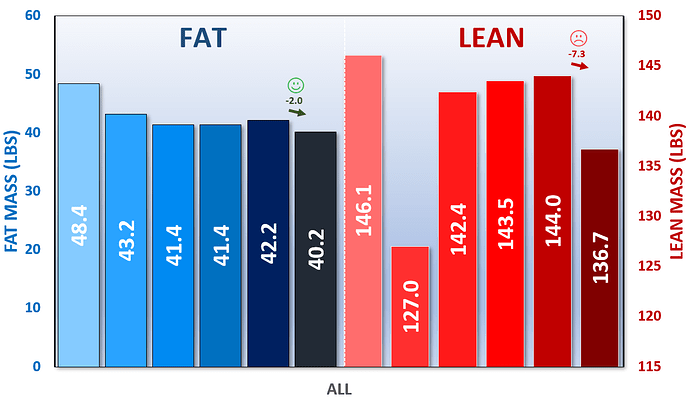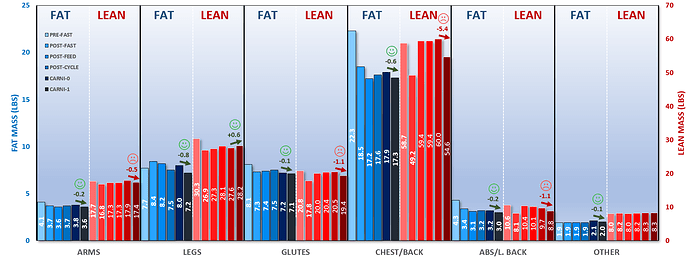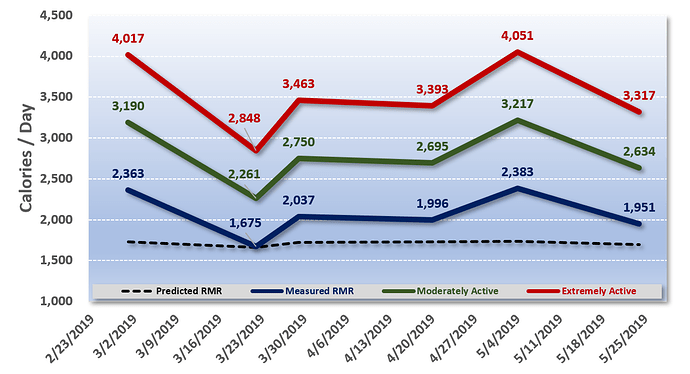Sarcopenia
Causes
Satellite cells are small mononuclear cells that abut the muscle fiber. Satellite cells are normally activated upon injury or exercise. These cells then differentiate and fuse into the muscle fiber, helping to maintain its function. One theory is that sarcopenia is in part caused by a failure in satellite cell activation.[2]
Extreme muscle loss is often a result of both diminishing anabolic signals, such as growth hormone and testosterone, and promotion of catabolic signals, such as pro-inflammatory cytokines.[2]
Oxidized proteins increase in skeletal muscle with age and leads to a buildup of lipofuscin and cross-linked proteins that are normally removed via the proteolysis system. These proteins compile in the skeletal muscle tissue, but are dysfunctional. This leads to an accumulation of non-contractile material in the skeletal muscle. This helps explain why muscle strength decreases severely, as well as muscle mass, in sarcopenia.[3]
One group has suggested that the evolutionary basis for the failure of the body to maintain muscle mass and function with age is that the genes governing these traits were selected in a Late Paleolithic environment in which there was a very high level of obligatory muscular effort, and that these genetic parameters are therefore ill-matched to a modern lifestyle characterized by high levels of lifelong sedentary behavior.[5]
Epidemiological research into the developmental origins of health and disease has shown that early environmental influences on growth and development may have long-term consequences for human health. Low birth weight, a marker of a poor early environment, is associated with reduced muscle mass and strength in adult life.[6][7][8][9][10] One study has shown that lower birth weight is associated with a significant decrease in muscle fibre score, suggesting that developmental influences on muscle morphology may explain the widely reported associations between lower birth weight and sarcopenia.[11]
Exercise
Lack of exercise is thought to be a significant risk factor for sarcopenia.[15] Even highly trained athletes experience its effects; master-class athletes who continue to train and compete throughout their adult lives exhibit a progressive loss of muscle mass and strength, and records in speed and strength events decline progressively after age 30.[2][16]
Master-class athletes maintain a high level of fitness throughout their lifespan. Even among master athletes, performance of marathon runners and weight lifters declines after approximately 40 years of age, with peak levels of performance decreased by approximately 50% by 80 years of age.[17] However, a gradual loss of muscle fibers begins to occur at around 50 years of age.[17]
Exercise is of interest in treatment of sarcopenia; evidence indicates increased ability and capacity of skeletal muscle to synthesize proteins in response to short-term resistance exercise.[18] A 2009 Cochrane review also found evidence that in older adults progressive resistance training can improve physical performance (gait speed) and muscular strength,[19] which are two key components of sarcopenia.
Medication
As of July 2015, there are no approved medications for the treatment of sarcopenia;[1] however, β-hydroxy β-methylbutyrate (HMB), a metabolite of leucine which is sold as a dietary supplement, has demonstrated efficacy in preventing the loss of muscle mass in individuals with sarcopenia.[1][20][21] A growing body of evidence supports the efficacy of HMB as a treatment for reducing, or even reversing, the loss of muscle mass, muscle function, and muscle strength in hypercatabolic disease states such as cancer cachexia;[22][23][24] consequently, as of June 2016 it is recommended that both the prevention and treatment of sarcopenia and muscle wasting in general include supplementation with HMB, regular resistance exercise, and consumption of a high-protein diet.[22][23] Based upon a meta-analysis in 2015, HMB supplementation appears to be useful as a treatment for preserving lean muscle mass in older adults.[note 1][21] More research is needed to determine the precise effects of HMB on muscle strength and function in this age group.[21]
DHEA and human growth hormone have been shown to have little to no effect in this setting. Growth hormone increases muscle protein synthesis and increases muscle mass, but does not lead to gains in strength and function in most studies.[25] This, and the similar lack of efficacy of its effector insulin-like growth factor 1 (IGF-1), may be due to local resistance to IGF-1 in aging muscle, resulting from inflammation and other age changes.[25]
Testosterone or other anabolic steroids have also been investigated for treatment of sarcopenia, and seem to have some positive effects on muscle strength and mass, but cause several side effects and raise concerns of prostate cancer in men and virilization in women.[25][26] Additionally, recent studies suggest testosterone treatments may induce adverse cardiovascular events.[27][28][29] Other approved medications under investigation as possible treatments for sarcopenia include ghrelin, vitamin D, angiotensin converting enzyme inhibitors, and eicosapentaenoic acid.[25][26]
Nutrition
Protein intake and physical activity are important stimuli for muscle protein synthesis.[30] A number of expert groups have proposed an increase in dietary protein recommendations for older age groups to 1.0-1.2 g/kg body weight per day.[31][32] Key nutrient supplementation in older adults is of interest in the prevention of sarcopenia and frailty, since it is a simple, low-cost treatment approach without major side effects.[33]






 because of the potential financial impact
because of the potential financial impact



